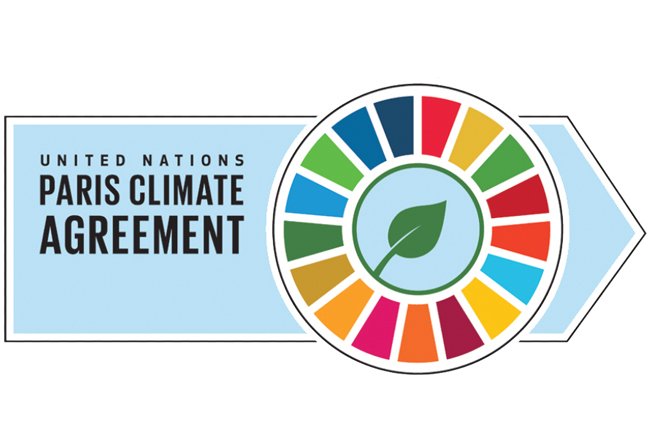It is time for an important check-point. Now more than ever, the commitment to manage climate change in a strong, consistent and transparent way from a global perspective is of utmost importance for the future of our planet.
Five years ago, on 12 December 2015, Parties to the United Nations Framework Convention on Climate Change (UNFCCC) laid the foundation for a new, ground-breaking chapter in the global climate effort. During Paris Climate Conference (COP21), 190 Parties adopted the so-called Paris Agreement, the first-ever universal and legally binding global climate change agreement (1). Digital4Planet celebrates Paris Agreement.

The Paris Agreement sets out a global framework to combat climate change by limiting global warming to well below 2°C above pre-industrial levels and pursuing efforts to limit it to 1.5°C. Moreover, the Agreement aims to strengthen countries’ ability to deal with the impacts of climate change and supports them in their efforts (2).
Next to these central objectives, the Paris Agreement also aims at advancing international cooperation in the development and transfer of climate-safe technology, and it underlines the importance of climate change education and training as well as public awareness, participation and access to information (1).
To meet the Paris goals a lot of work still needs to be done, especially with respect to energy generation. As reported by the UNEP (3), production of fossil fuels is still planned to increase by 2% a year despite the urgent need for cuts in carbon emissions. More drastic and systemic changes are needed: between 2020 and 2030, global coal, oil, and gas production must fall by 11%, 4%, and 3% a year respectively, to meet the 1.5°C target (4).
Working together, governments, companies and investors must join forces to ensure significant reduction on fossil fuel production. The good news is that recently many countries have set clear goals to reduce their Greenhouse Gas (GHG) emissions to a fraction of their current amount, to the point they are equal to or outweighed by carbon sinks. This is already leading to important results. In 2020, renewable energy will make up about 90% of the new energy generation capacity installed worldwide, and by 2025 will be the biggest source of power, displacing coal (5).
“The 5th anniversary of the Paris Agreement gives us the opportunity to renew a call to climate emergency and reiterate our commitment to promote green digital innovation and technologies for the sustainable development of our society”, says Dr Monique Calisti, President of Digital for Planet – D4P.
“The ICT industry has a huge impact on the environment. Society and ultimately, our planet’s future depend on a growing community of individuals and organisations at work to develop sustainable digital technologies – and D4P is helping to join forces”, she adds.
Our non-profit organisation gathers experts and aims to grow this community and empower it, while increasing the positive impact of the many sustainable/green ICT solutions and initiatives that are emerging. We work both with the public and private sectors at national, regional and global level. We bring together people and organisations willing to bring about digital sustainability. We help you find like-minded people and potential project partners to take your sustainable digital innovation to the next level. Digital4Planet celebrates Paris Agreement.
Join the growing community of organisations and individuals at work for sustainable ICT development and adoption and contribute to the development of a digitally empowered and ethically responsible society!
Digital for Planet - D4P © 2025 | All rights reserved